
Keynote Speakers |
|
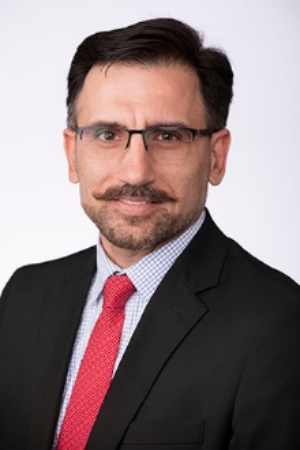 |
Mr. Sher Jan Ahmadzai
Sher Jan Ahmadzai is the director of the Center for Afghanistan (and Regional) Studies at the University of Nebraska at Omaha. As Director for the Center, Mr. Ahmadzai, teaches a class titled “Geo-Politics of Central Asia and South Asia”, oversees the Center’s all academic, programmatic and administrative affairs, and leads higher education academic capacity building projects and initiatives in Central Asia and South Asia (CASA), especially in Afghanistan, Pakistan, Uzbekistan, Kazakhstan, and co-leads a project in India. Mr. Ahmadzai has presented on mental health of Afghan refugees in the U.S. and is actively involved in supporting Afghan refugees in their efforts to assimilate in the U.S. |
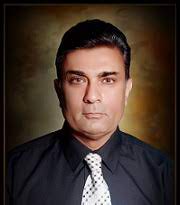 |
Prof. Dr. Jahanzeb Khan
Prof. Dr. Jahanzeb Khan, VC FATA University, is a renowned psychologist and educationist who has been serving the community for more than 30 years now. Currently, he is the President of Pakistan Psychological Association. He has completed his postdoctoral researches at University of California Berkeley, USA and Leicester University, UK. He has served as Vice Chancellor University of Swat; Dean Faculty of Social Sciences, University of Peshawar; Chairman Department of Psychology, University of Peshawar; Director Staff Training Institute, University of Peshawar; and Managing Director, Peshawar University Teachers’ Foundation. Dr. Muhammad Jahanzeb Khan has many research papers on his credit and has developed many educational and psychological tests. He has a deep interest in the erstwhile FATA region and is fully motivated to bring in change in the lives of people of the area through higher education, believing in providing education and training facilities at the doorstep of common people. |
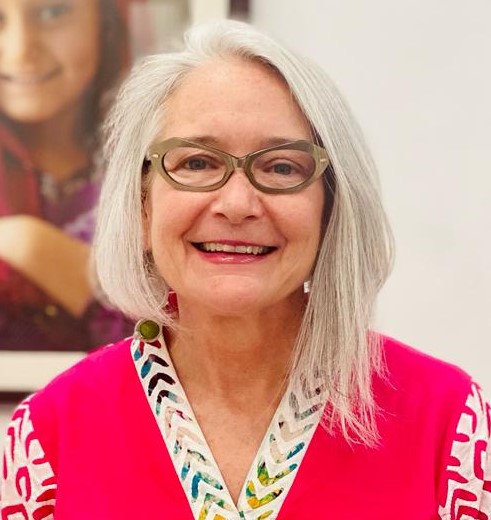 |
Ms. Tammi Sharpe
An American national, Ms. Sharpe took up her appointment as the Deputy Representative for UNHCR Pakistan in January 2021. With close to 25 years of experience with the UN, having joined UNHCR as an U.S. Junior Professional Officer in 1997, she has served in a range of positions within the UN. In addition to UNHCR, she was seconded to the UN Peace Keeping Mission in Liberia as well as with the UN Peacebuilding Commission in New York. Prior to joining the UN, she worked in Washington, DC with the U.S. Catholic Conference as a Policy Associate and volunteered as a U.S. Peace Corps Volunteer in Senegal. Ms. Sharpe has been posted in Africa, the Middle East and Asia along with assignments in UNHCR Headquarters and the UN Secretariat in New York. Her professional expertise covers a wide spectrum of humanitarian protection, peacebuilding, reconciliation, the humanitarian-development nexus, external relations and management. |
Guest Speakers |
|
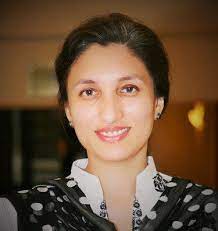 |
Dr. Salma Malik
Salma Malik is an Assistant Professor at the Department of Defence and Strategic Studies, Quaid-I-Azam University, Islamabad, Pakistan. She specializes in the areas of conflict and security studies, and South Asian Affairs. She is an alumnus of the Uppsala University, Sweden. Prior to joining QAU, she worked at the Institute of Strategic Studies, Islamabad. Her publications include, “Pakistan’s security problems and challenges in the next decade,” (October 2015). RCSS Policy Studies titled “small arms and the security debate in South Asia,” USIP co-authored study on “mapping conflict trends in Pakistan”, besides articles in research journals, book chapters and monthly columns. |
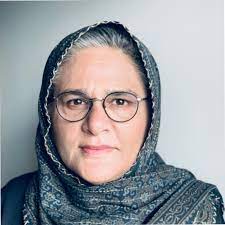 |
Dr. Asma Humayun
Dr Asma Humayun is a member of the Royal College of Psychiatrists in the UK and has 30 years of experience in clinical care, capacity building and service development. Her work has focused on integrating psychosocial aspects of healthcare into medical training; scaling up mental health resources and advocating for ethical & scientific mental healthcare in Pakistan. She has been the National Technical Advisor on mental health for the Ministry of Planning, Development & Special Initiatives since 2021 and has developed a rights-based digital solution for public mental healthcare in Pakistan. |
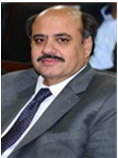 |
Prof. Dr. Zafar Nawaz Jaspal
Prof. Dr. Zafar Nawaz Jaspal is a professor and the director at the School of Politics and International Relations, Quaid-i-Azam University, Islamabad, Pakistan. Before joining the University (in August 2002), he has been a Research Fellow at the Institute of Strategic Studies, Islamabad. As a guest speaker/visiting lecturer, he has served at many professional and training institutions, including distinguished NATO School, Oberammergau, Germany; NATO Defense College Rome, Italy, Center of Excellence: Defence against Terrorism, Ankara, Turkey; National Security & War Courses of Pakistan's National Defence University; Intelligence Bureau Academy, Command and Staff College Quetta; Air War College, Karachi, Pakistan Navy War College, Lahore and Foreign Service Academy of the Ministry of Foreign Affairs, Pakistan. He is an alumnus of the European Peace University Stadtschlaining, Austria; Oslo University, Norway and Sandia National Laboratories, Albuquerque, New Mexico, United States. He is a widely published scholar with more than 125 academic research papers, monographs, and chapters in edited books. He has authored three books and presented more than 300 papers in conferences and seminars. |
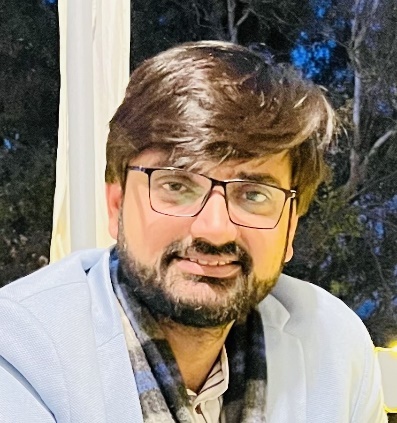 |
Dr. Malik Hammad Ahmad
Dr. Malik Hammad Ahmad has received his PhD in Peace and Nonviolence from The University of Warwick (UK), MA in Peace, & Conflict Studies from University of Jaime-I, Spain & MSc in History, Quaid-i-Azam University, Pakistan. He has 14 years of professional experience in Human rights, and Gender in government sector of Pakistan and international development sector organisations. He also has 6 years of experience in teaching in various universities of Pakistan, UK and Spain. He has on his credit a couple of publications as well as participation in various courses and conferences on these themes across the globe. He has command over multiple languages including English, Spanish, Urdu, Hindi, Saraiki, Punjabi and Catalan. |
Panelists |
|
| Topic: Structural and Social Determinants of Mental Health of Afghan Migrants | |
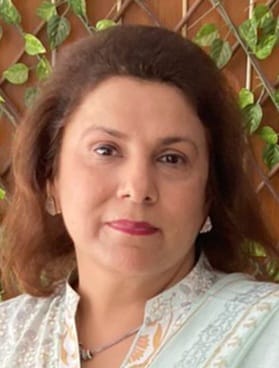 |
Dr. Shabana Fayyaz
Dr. Shabana Fayyaz is the Chairperson and Associate Professor at the Defense & Strategic Studies Department, Quaid-i-Azam University, Islamabad. She holds a PhD from University of Birmingham, UK. She is also a member of the Aman-o-Nisa (National Women collision for Women Role in Peace and Security and an advisory member of Arms Control and Disarmament Center (ACDC). She also attended a courses at the Asia Pacific Security Studies Center (APCSS), Honolulu, 2002, USA, Harvard Kennedy School, USA. She is the author of a book titled “Pakistan's Response to Terrorism: A Case Study of Musharraf era published in 2020. She has participated in a number of seminars and conferences at the national and international level on themes related to non-traditional security, violent extremism, counter-terrorism, Pakistan’s foreign policy, and South Asian politics. She has also hosted and participated in number of radio and television programs focusing on terrorism, counter-insurgency, challenges of de- radicalization and non-traditional security issues. |
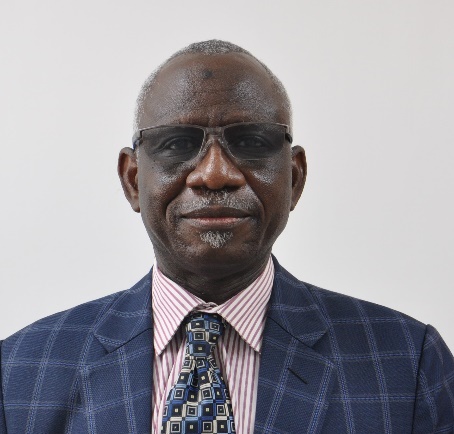 |
Dr. Inoussa Kabore
Dr. Inoussa Kabore (MD, MPH) has been the Deputy Representative (Programmes) of UNICEF in Pakistan since July 2021 and leads the overall UNICEF programmes and provides strategic guidance for their implementation, coordinating with the Government, UN sister agencies and partner organizations, including members of the private sector and civil society. Dr. Kabore is an expert in the fields of Public Health; Programme Planning; Monitoring, Evaluation and Research; and Programme Management. He has more than 20 years of experience in development and humanitarian programmes in South Asia, Africa, Latin America, the Caribbean, the Middle East and North Africa, Asia and the United States. He served as Director of Evaluation, Surveillance and Epidemiologic Research (ESR) with FHI360 in Washington leading global programmes and supporting 50 countries. He is the author and co-author of several reports and publications in high impact journals. |
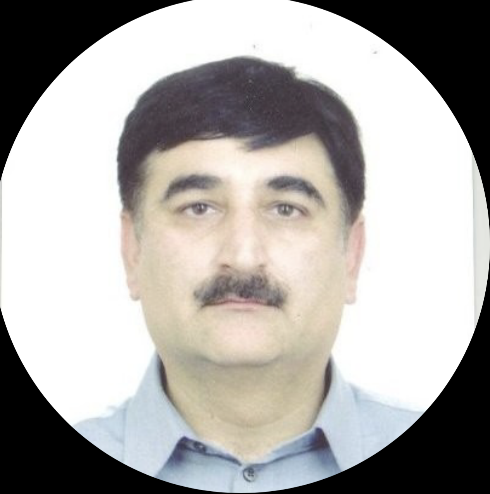 |
Dr. Pervez Shaukat
Dr. Pervez Shaukat is working as a Public Health Officer at UNHCR. He is a humanitarian and development practitioner with over 30 years of field experience, working mostly in Pakistan, Afghanistan, and Central Asia, with Save the Children US, IRC and UNHCR. He has have a good exposure to multiple sectors including primary and reproductive health, HIV, nutrition, education, WASH, Livelihood, youth health, vocational education and skill training, scholarships, eye care, agriculture etc. He has in-depth knowledge of the challenges in the delivery of basic social and protection services in humanitarian situations and large-scale displacements. His expertise ranges from technical, program management, fiscal and operational oversight to research. |
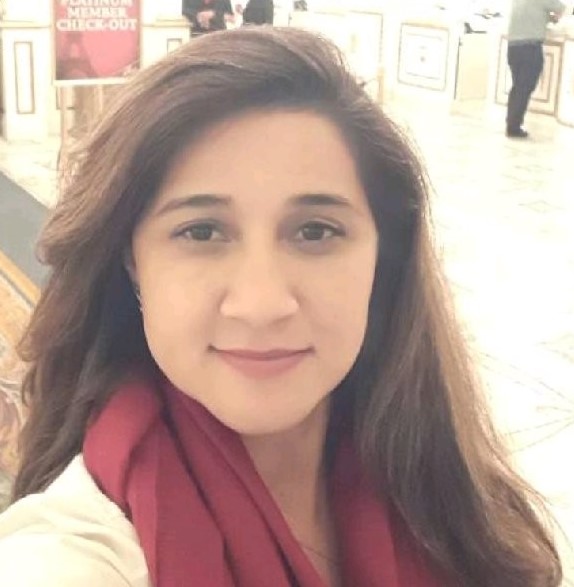 |
Ms. Mahjabeen Qazi
Ms. Mahjabeen Qazi is the Area Coordinator for KP and FATA, for the Food and Agriculture Organization of the United Nations for 10 years. She has formulated and implemented Program and projects in close coordination with relevant Government institutions, development and Humanitarian partners. She also remained an active member of the Cluster system and represented FAO on various forums including clusters, Humanitarian Regional Team and Area Security Management Team in Peshawar. She has also undertaken around 25 short term consultancies with national and international organizations including World Bank and UN agencies. She has also represented Pakistan in Women in Leadership Network under the Australia Awards Alumni Network banner at South and West Asia Regional level. |
| Topic: Mental Health of Afghan Migrants: Issues, Challenges, and Solutions for All Stakeholders | |
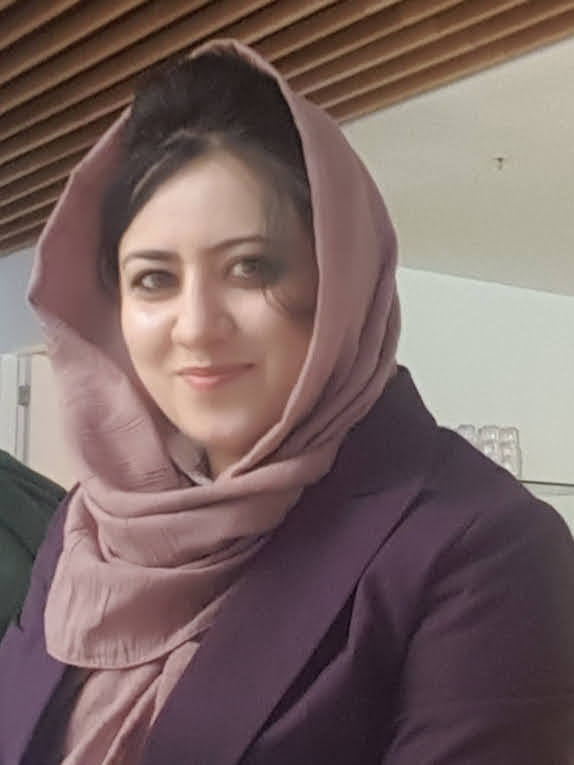 |
Ms. Naveen Hashim
Ms. Naveen Hashim works as a manager and women's program coordinator of multiple projects of USAID since 2011 in eastern Afghanistan. She also worked as Advisor to deputy minister for policy in the ministry of finance Afghanistan. Currently she is leading the Afghanistan-Pakistan Women's association (APWA) which works to strengthen the leadership of Afghan women and girls in forced displacement and to resolve their issues in the host country. She is also working with Pen Path Afghanistan that is working for girl’s education and peace building. She has also conducted research on role of women in economic development of Afghanistan. |
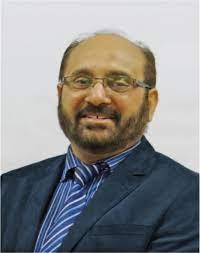 |
Dr. Muhammad Tahir Khalily
Dr. Muhammad Tahir Khalily is a Professor of clinical psychology and Dean faculty of social sciences in Shifa Tameer-e-Millat University, Islamabad. Previously, he worked as the Vice president Academics; Director Academics; Director Quality Enhancement Cell; Students Advisor and Director ORIC at International Islamic University Islamabad, Pakistan. He has more than thirty years of national and international teaching, research, clinical, supervisory, academic, administrative and service development experience. He has also worked as a Head and Senior clinical psychologist in the Psychology Department Roscommon Mental Health Service at National University of Ireland Galway Republic of Ireland. He completed his Masters from Dublin University Ireland, completed his diploma in mental health care management from National University Ireland Galway and post-doctoral research fellowship from the University of Edinburgh UK. |
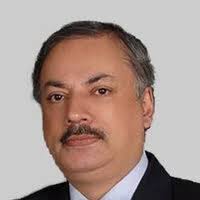 |
Prof. Dr. Rizwan Taj
Prof. Dr. Rizwan Taj did MRC Psych and FRCPsych, Royal College of Psychiatrists, London. He has been Ex-Principal FMDC. He is Chair UNESCO Bioethics, Pakistan. He is Founder and Federal Representative Pakistan Association of Psychiatry. He has been group leader treatment and rehabilitation National Task Force on Mental Health. He was awarded Presidential Gold Medal for leading Psychosocial Pograms after the 2005 earthquake disaster in Pakistan. He has earned many awards including Americam Psychiatric Association Pakistan Chapter for academic excellence award; International Distinguished Fellowship Award Americam Psychiatric Association; Fellowship of International Institute of Psychological Medicine, Australia, USA, and UK. He earned appreciation certificate from NCOC for COVID-19 related work. He was appreciated for running stress management trainings during COVID-19 persion by Shifa International Hospital. |
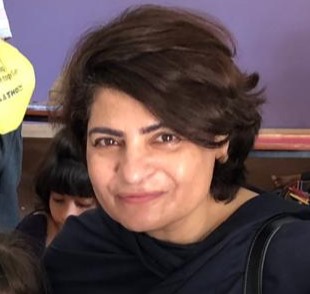 |
Ms. Zeba Husain
In 2008, Zeba Husain initiated project under the name of Mashal Model School was initiated which aims to provide holistic education for out of school children in slum areas . Zeba holds a master’s degree in Political Science and bachelor’s degree in education from Upper Iowa university USA. She has completed an international in Montessori education from London and taught in America for 5 years. She secured a diploma from Kilroy college from Dublin in Adult psychology as well. She is working with Afghan refugee families for more than 2 decades providing free education of Afghan children and helping their families deal with their social, emotional and psychological problems. At present Mashal school has been working with 200 children who have been affected by the latest regime change in Afghanistan. |
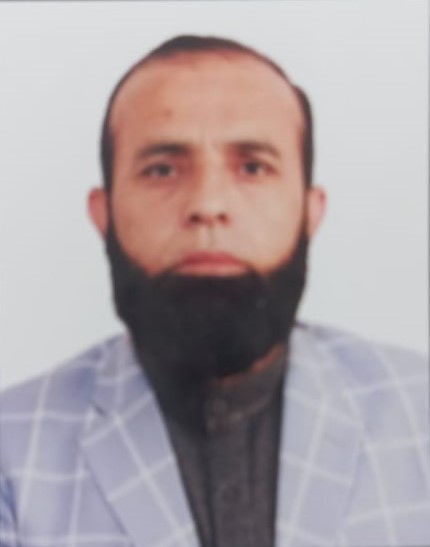 |
Dr. Syed Aziz Agha
Dr. Syed Aziz Agha is a practicing clinical and positive psychologist, and motivational speaker. He is member of Baluchistan Mental Health Authority constituted by Govt of Baluchistan. He has earned his PhD in clinical and positive psychology from National Institute of Psychology, Quaid-i-Azam University, Islamabad. He is resource person/ trainer with Mercy Corps International, Baluchistan, Baluchistan Judicial Academy Quetta, Human Rights Commission of Pakistan, and Baluchistan Academy for College Teachers, Quetta. He worked as consultant psychologist with IOM at district Ziarat of Baluchistan for providing mental health services to earthquake effectees and training to medical doctors on mental health interventions. |